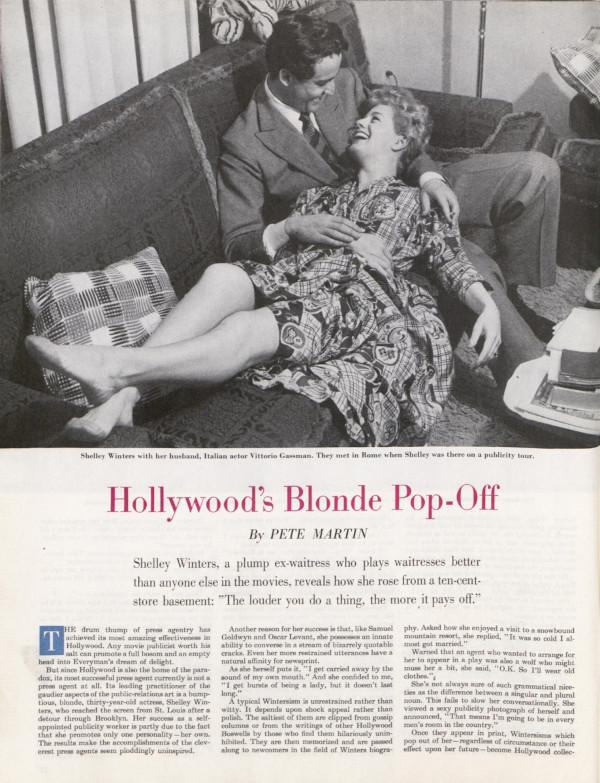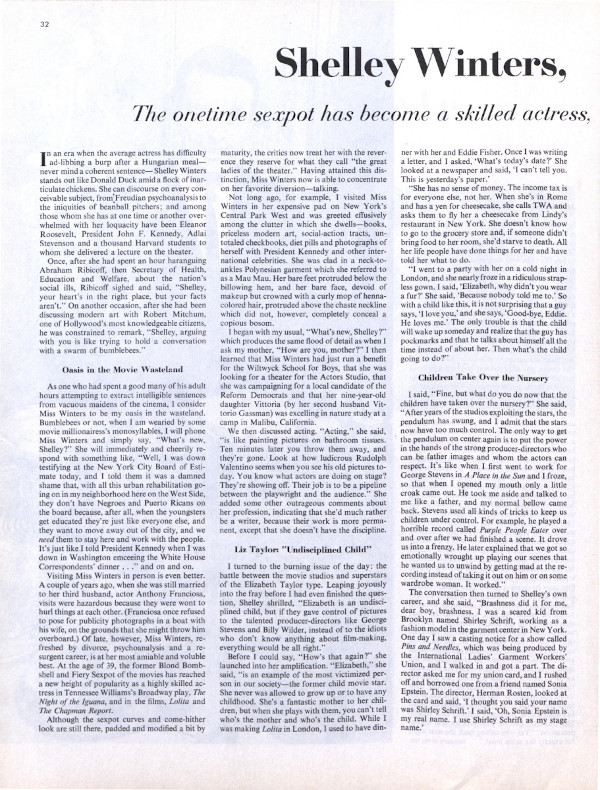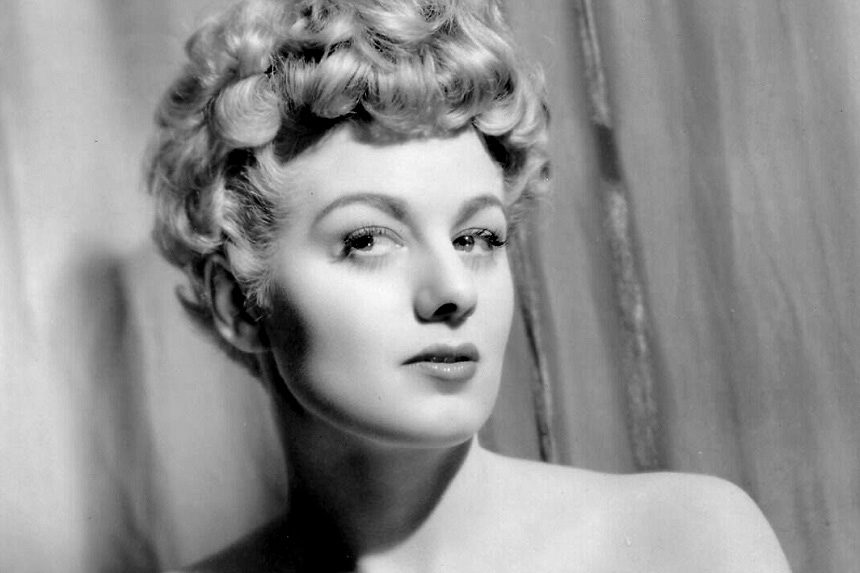Today is the 100th anniversary of the birth of actress Shelley Winters, who surprised film and theater audiences with her transformation from a supposed blonde bombshell to a cerebral actress concerned with politics and social justice.
While giving a screen test for her breakout role as a waitress in A Double Life, Winters told the Post she objected to director George Cukor’s instructions on how to pass as working girl: “Take it easy, Mr. Cukor”” she said. “I’ve been a waitress. Have you?”
In a 1950 installment of “The Role I Liked Best … ” Winters admitted she had only worked at a delicatessen for four nights before quitting. Her part in the Cukor film opened the door to a dynamic Hollywood career, including several Oscar wins and nominations for films like A Place in the Sun, The Diary of Anne Frank, A Patch of Blue, and The Poseidon Adventure.
The Post printed two interviews with Winters, 10 years apart. In 1952, Pete Martin proclaimed she was a difficult, hotheaded star with undeniable talent, and by 1962, “the onetime sexpot” had “become a skilled actress,” according to Bill Davidson. She was starring on Broadway in The Night of the Iguana by Tennessee Williams, and she had seemingly redirected her assertiveness from her coworkers to larger societal ills, from minority representation in municipal government to drug abuse.
Winters attended the 1960 Democratic Convention and spoke at a White House Correspondents’ Dinner. She campaigned with Democratic governor Adlai Stevenson and attended the 1965 marches from Selma to Montgomery. In her Oscar acceptance speech for playing the racist, abusive mother in A Patch of Blue, Winters thanked the film’s producer “not only for making a sensitive, beautiful picture about a subject of integration … but for making the picture a box office success, which is very important for subjects like these.”
Winters passed away in 2006 after writing two autobiographies that were praised for their tasteful, yet candid details of her heedless journey through show business and romance. On her outspoken nature, Winters gave the Post insight in her 1952 interview that might have served as a warning for anyone who thought she would remain a mere fragile beauty of the screen.
Anybody who tells you that being a movie star is just like being the girl next door is full of balloon juice. People pay their dough at the box office to see a star because they think she lives dangerously and is out every night racketing around. As I told someone once, once I figured that out, I created an interesting off-screen personality for myself. I invented myself. I’m still inventing.


Featured image: Public domain publicity photo from Wikimedia Commons
Become a Saturday Evening Post member and enjoy unlimited access. Subscribe now




Comments
Thank you Nick for this article on this great, complex, contradictory, lovable, take-no-prisoners, sexy actress and activist on her 100th birthday. It’s kind of a cool coincidence it was the same day women finally won the right to vote.
She had quite a mouth on her, and knew how to put people in their place as needed. She was also very compassionate and had empathy as well. Had I been in the business back then as a contemporary of Ms. Winters, I’d definitely want her as a friend on my side.
Her film roles are very varied, and span the middle of World War II until the VERY end of the 20th century. I would love to watch a lot more of her films than I’ve seen, and will do just that. She’s yet another example of why no one even needs the 21st century as a source for films (except the industry) as there are SO many from the 20th none of us have seen, or will live long enough to see. Ms. Winters offers a substantial number to start from, I’d say. Her contributions to television also, are substantial. Who else could have portrayed Ma Parker so beautifully on the ’60s ‘Batman’ series? Why no one, of course!